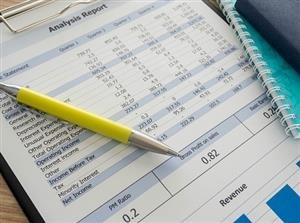
We've all seen examples of it. A business which, though nothing special at first glance, has amazing customer loyalty in the community and a larger market share than makes sense in the area. How exactly does the business gain this type of reputation and loyalty? Even more important, how is that part of the business valued in an appraisal? Goodwill can often have a great deal of benefit and monetary value but is a complex topic. Here's a quick look at how the process works.
How is goodwill calculated in a business valuation?
Unlike your company's material assets, which is considered a tangible asset, goodwill is an intangible asset. It can not be calculated outside of a full business valuation. But exactly how is it calculated? The most basic calculation takes the fair market value of a company's assets and liabilities, and then deducts the amount from the sale price of the business. The remaining amount represents the company's goodwill.
However, it's not as simple as adding up columns in a ledger. How do you calculate fair market value for your company's assets and liabilities? How can you be sure that the figure you have calculated is actually accurate? Will it stand up to strong scrutiny if your business ends up dealing with insurance, legal or financial woes?
But where does goodwill come from and how can you determine whether your company has acquired it? It can come from a wide range of aspects of your company. Are you top in your industry and well known for developing innovative new techniques, products or services? Perhaps your industry is entering a boom and the anticipated future income is increasing its value beyond what it would normally sell for. This is yet another example of goodwill.
What about strong community ties? A company that has spent many years or even decades in the community, building a name and a strong customer following, may have additional value for those reasons. Even better, it's quite often value that a new owner may be able to leverage to their advantage. This is especially true when the previous owner helps pave the way with the community or industry.
Calculating all these potential sources can be difficult, especially if you're considering selling or buying a business. Justifying the amount to be paid for goodwill is equally difficult. What is fair market value for your company's assets? When you have a company that has generated significant goodwill in your industry or region, it can be hard to determine the value of that reputation. Fortunately, you don't have to. A certified business appraiser has the training and experience to create a valuation report that reflects the value of all your company's assets, tangible and intangible.
When a certified business valuation specialist prepares a valuation report, that individual has the knowledge of how to best determine the company's overall value and then calculate the goodwill by separating out the fair market value of the assets and liabilities. But in addition to simple cash value, they will also consider the market conditions, the industry as a whole and any other aspects that may impact the company's value.
Once this process is complete, they'll present the results in a report for your consideration. Once all parties agree that everything has been included in the process, the final value and the value of the goodwill is settled. From that point, it's up to you to decide what to do and with a certified appraiser's report, you'll be able to negotiate from a position of strength.